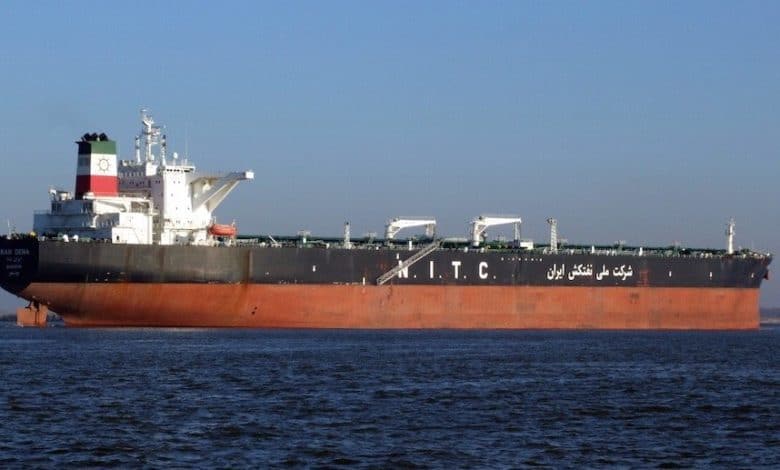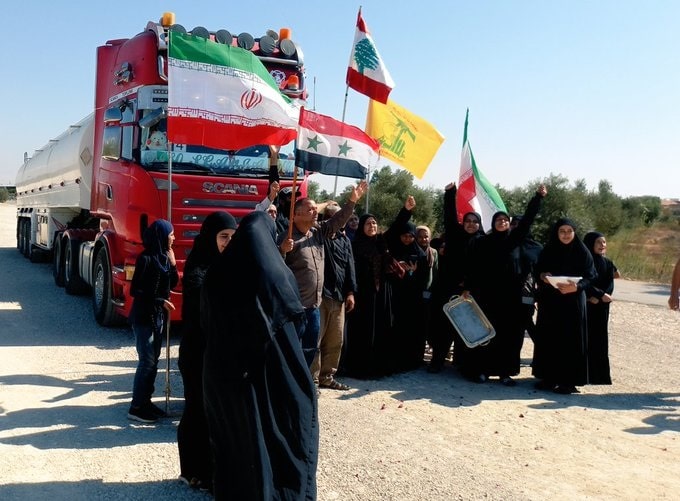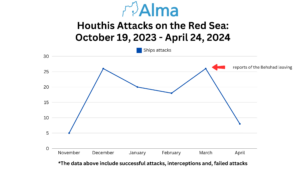Naim Qassem, Nasrallah’s second in command, stated that Hezbollah intends to import four fuel tankers from Iran and will perform a situation assessment as to whether to import additional ones. As of now, the third fuel tanker (“FORTUNE”) imported from Iran has arrived at the Banias port in Syria. Upon docking, the tankers’ fuel is transported to Lebanon in trucks and arrives in the city Baalbek in the Beqaa Valley. From there, Hezbollah sees to it that it is distributed in accordance with its own interests.

As we have stated, the arrival of a fuel tanker in Syria and Lebanon is not unprecedented. For quite a while, it has been known that Hezbollah receives Iranian fuel tankers in this exact manner, smuggles the fuel through illegal border crossings, and uses it for its own purposes. Today, for PR reasons, Hezbollah published the arrival of the fuel tanker in order to reinforce its “Economic Shield” and “Siege-and-Sanction Buster” narratives.
Most of the fuel is sent to Hezbollah’s “Al Almana” gas station company and Shiite villages to fuel generators for “vital facilities.” However, a town will receive this fuel on the condition that it will publish a message of gratitude to Hezbollah, Nasrallah, and Iran for public relations purposes.
The praise propaganda surrounding the fuel tankers is disproportionate to the fuel tankers’ true benefit. The average Iranian fuel tanker contains approximately 40 million liters of fuel, while Lebanon’s average daily consumption of fuel is approximately 7.5 million liters. So, one fuel tanker will last about five days, provided that the tanker’s fuel in its entirety is designated for Lebanon’s daily consumption. However, it is safe to assume that not all of the tanker’s fuel is designated for this, but rather for Hezbollah’s daily consumption (its fuel reservoirs, military needs, black market trade, etc.) This data reinforces our opinion that Hezbollah is pulling a PR stunt because the fuel tanker’s benefits are few and far between.
Let’s be perfectly clear – Iranian fuel transported in Hezbollah’s “PR tankers” does not provide fuel for Lebanese power plants. Simultaneously, as a result of the agreement with Iraq that was made by Lebanon several weeks ago, an Iraqi fuel tanker was sent to Lebanon as well, and its fuel was sent to the “Al Zaharani” and “Dir Amar” power plants.
In the meantime, a Turkish company that has been operating two power barges for the past eight years off of Beirut’s coast has been forced to cease its business due to the Lebanese government’s accumulating 100-million-dollar debt.
To put things into perspective, these power barges supplied approximately a quarter of Lebanon’s electricity. Can Hezbollah’s “PR tankers” help? Probably not…






